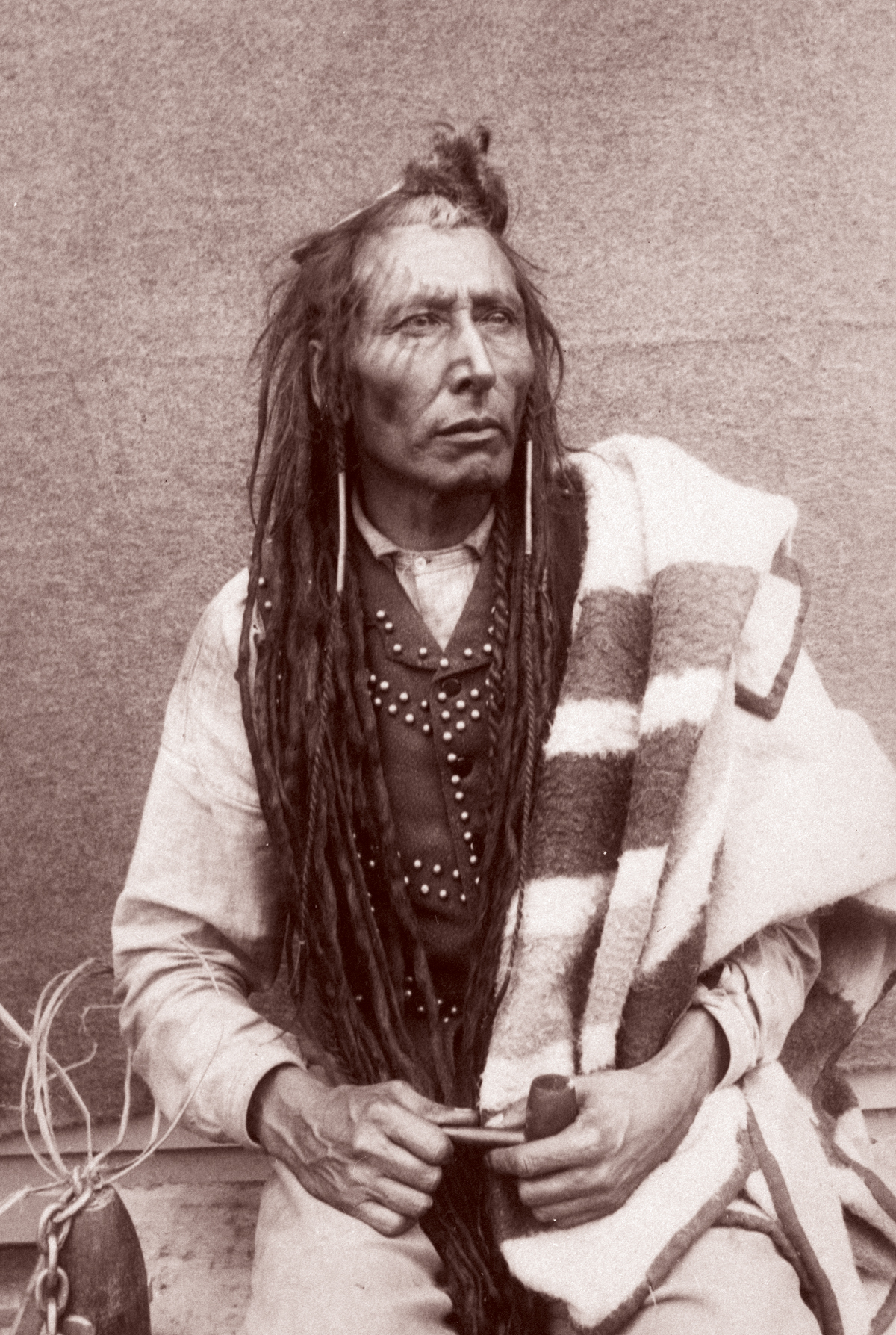Poundmaker (1842-1886), known to his people as Pitikwahanapiwiyin, was a North American Plains Cree chief. Poundmaker desired to live peacefully with white settlers. However, he was drawn into the 1885 North West Rebellion against the Canadian government and convicted for his apparent involvement in it.

Poundmaker was born in what is now central Saskatchewan, Canada. As a young man, Poundmaker was adopted by the prominent Blackfoot chief Crowfoot , whose son had died. Poundmaker’s parents also had died. Poundmaker stayed with the Blackfoot (sometimes called the Blackfeet) for a time. His association with them increased his influence when he returned to his own people.
In 1876, Poundmaker signed Treaty 6 with Canada, even though he had concerns about its terms. The treaty set aside land for several indigenous (native) groups and provided for cash payments and supplies, as well as assistance in times of great misfortune. Poundmaker encouraged his people to adopt farming on a reserve named after him. In 1881, he had the honor of serving as an escort during a visit of Canada’s governor general to the region.
After the North West Rebellion began, Poundmaker’s band visited Fort Battleford, in what is now Saskatchewan , where the frightened settlers had hidden in the fort. The band sought to declare its allegiance to the queen and to secure rations. After government officials refused to meet with them, some band members helped themselves to food in abandoned buildings. However, they did nothing to harass the frightened settlers in the fort. The Poundmaker Cree then camped peacefully near Cut Knife Hill to observe what would happen during the rebellion. Canadian troops attacked the Cree camp and were driven back in a fierce counterattack. Poundmaker intervened to prevent the killing of retreating troops.
After the rebellion, Poundmaker claimed he had done everything possible to avoid bloodshed. He said, “My people made war gently.” But the Canadian government brought him to trial and convicted him of treason -felony, a crime under the laws of the time that involved disloyalty to the government. Poundmaker was sentenced to three years in prison, but he was released after about seven months. He died of tuberculosis several months later on July 4, 1886. In 2019, the Canadian government publicly recognized Poundmaker as a peacemaker, apologized for his treatment, and exonerated him—that is, cleared him of blame.
